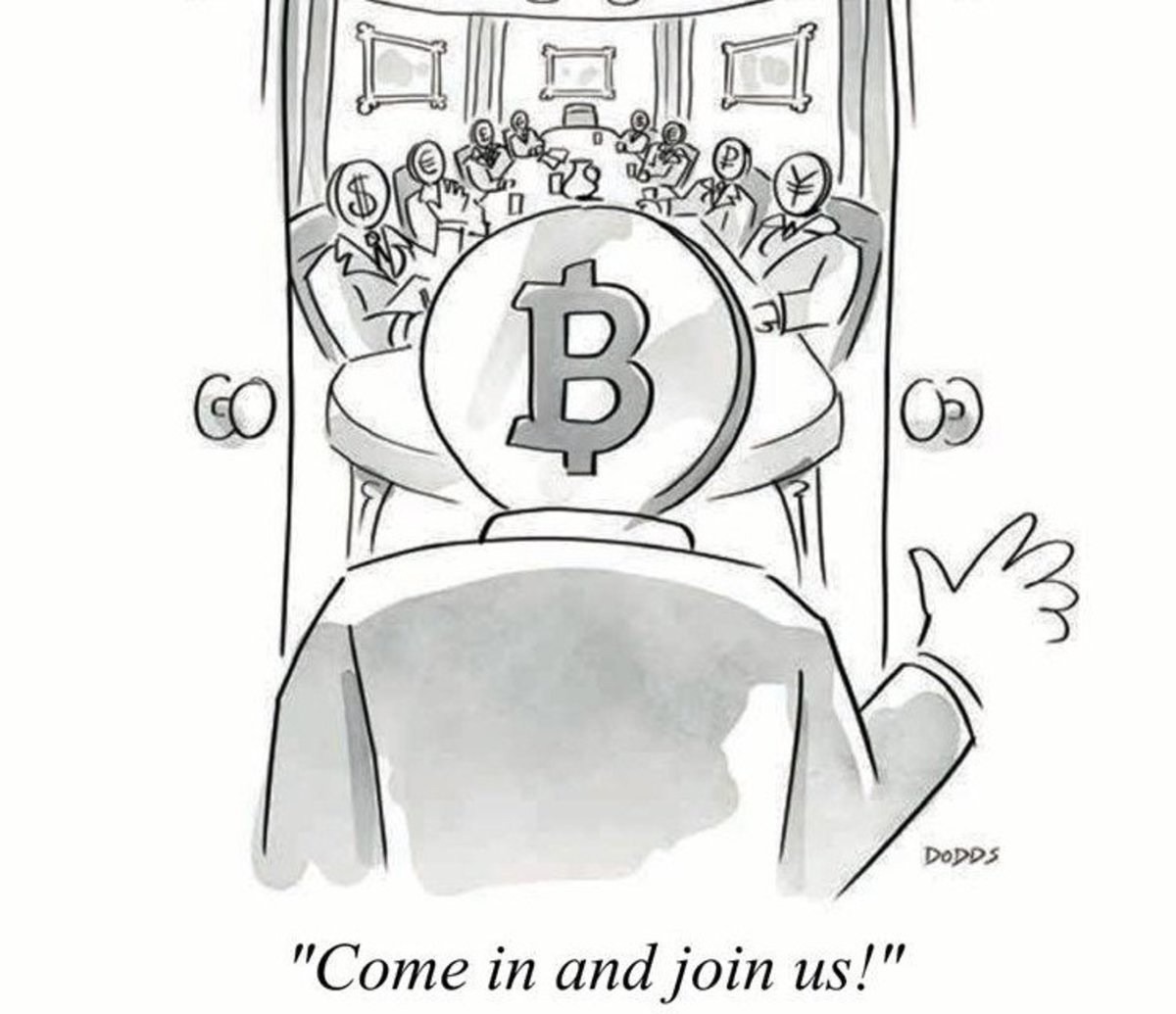
The largest Bitcoin exchange, MtGox, has purchased a full-page ad in the official G8 Summit Magazine published on behalf of the host nations and distributed to all attendees. The advertisement features a cartoon drawing shows a boardroom full of people (presumably government diplomats), each representing their respective national currency, with a new member walking in representing Bitcoin, and includes a QR code leading to a special landing page explaining the benefits of Bitcoin as an innovation in banking. The page compares the limited business hours, high merchant fees and security and privacy flaws of traditional banking to the benefits that we all know and love in Bitcoin: 24/7, near-zero fees, and maximum 0.6 fee with MtGox.
The G8 is one of the most important economic forums in the world, comprising eight of the world’s eleven wealthiest economies: the United States, the United Kingdom, Canada, France, Germany, Italy, Japan and Russia. The organization holds annual summits, and this year the 39th is now taking place in Northern Ireland. Although the G8 has recently decreased in importance compared to the more recent, and more inclusive, G20 due to the rise of emerging economies such as China, Brazil and India, the organization nevertheless represents over 50 of the world GDP.
Bitcoin is only recently entering the conversation in the international political sphere, with a global forum on the legal challenges of virtual currencies having taken place at the World Bank and a paper released by the IMF this month. At this critical point in time, when governments are just trying to figure out how and to what extent they should regulate Bitcoin and work to integrate it into existing financial systems, a strong public relations effort from the Bitcoin community is vitally important, and MtGox is doing a service to the community by taking this step to present a government and business-friendly image for the currency. The tide may already be turning in Bitcoin’s favor, as Jennifer Calvery, head of the US regulator FinCEN, has repeated her statement that she is, at least in principle, in favor of innovation in digital currencies (although the merits of her regulatory framework can of course be debated in practice), and so if the Bitcoin community continues to engage in public-relations efforts in government and banking forums Bitcoin may well get past much of the unfavorable treatment that the established financial system has been giving it, encouraging wider business adoption and making Bitcoin stronger for us all.










